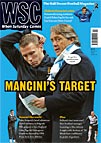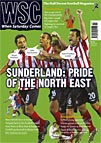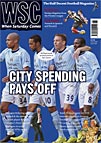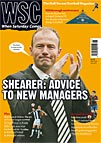 In an effort to control crowd trouble the Argentine authorities have embarked on a unique experiment. Sam Kelly explains
In an effort to control crowd trouble the Argentine authorities have embarked on a unique experiment. Sam Kelly explains
At this summer’s World Cup, police forces in Johannesburg and Polokwane will be more sorely tested than most should Argentine plans to mobilise supporters behind the national team go ahead. In other countries, fan groups find out which tickets they’ve secured and governments sift databases to ensure those with records of violence can’t travel. In Argentina, meanwhile, a non-governmental organisation has been talking to some of the country’s most prominent barra bravas in a bid to eliminate violence from domestic football. Their masterplan? In essence, to help the best-behaved hooligans secure funding to travel to South Africa.



